When fresh, nutritious vegetables are hard to come by, why not harvest your own microgreens
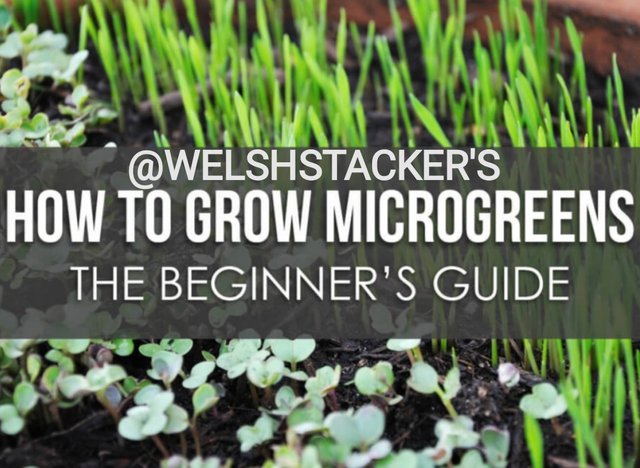
During these crazy times, you probably have a larder full of pasta, cupboards full of tins and enough flour to start your own bread company? But fresh greens may be harder to come by...
I wrote a blog yesterday, talking about starting an indoor garden, and the basic steps on how to go about it. But for today's post I'm going to try and cover a topic that I've really started to take an interest in - "micro-greens".
Many vegetables, greens and herbs are great to grow as microgreens:
- lettuce
- coriander
- rocket
- buckwheat
- amaranth
- beetroot
- broccoli
- spinach
- basil
- sunflower
- daikon radish
- mustard greens
… are just a few of your options.
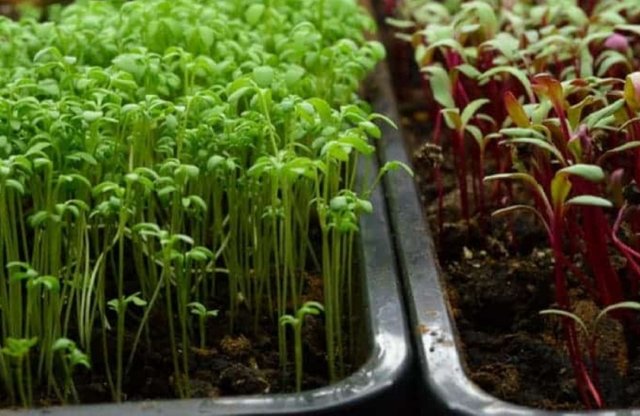
Microgreens are vegetable greens harvested just after the cotyledon leaves have developed. They are grown or purchased by people focused on nutrition, or else are used as both a visual and flavor component, primarily in fine dining restaurants.
Sometimes, getting your hands on the quickest, nutrient-packed greens doesn’t require you to do any growing, just some weeding!! Right now your garden, particularly if you are a person that neglects your gardening duties, already is dotted with free food that is good for you.
Check your garden and path edges, you might be surprised to what tickles the taste buds, and can add that little extra to your meal.
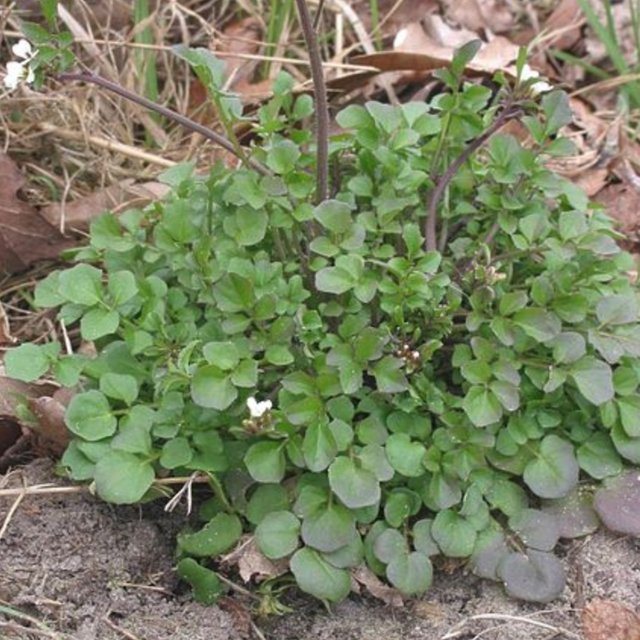
By far one of my favourite salad greens: a tiny rosette-forming weed with a flavour somewhere between wasabi and rocket – and not a hint of bitterness. You can eat it at any stage, but it’s particularly good when in flower, which happens to be now. Look for it in damp spots, around the base of pots and at path edges.
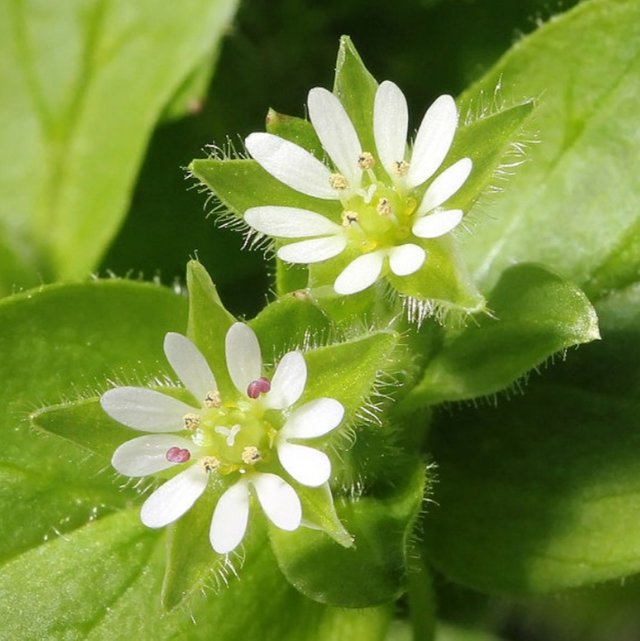
Rich in vitamin C, and a delicious alternative to lettuce. It makes a great base for salads or can be whizzed up raw into a very good pesto for all that pasta you have stored away. Again, it likes bare ground, damp spots and edges. Both these plants are low-growing and will need a good wash to avoid getting grit in your salad.
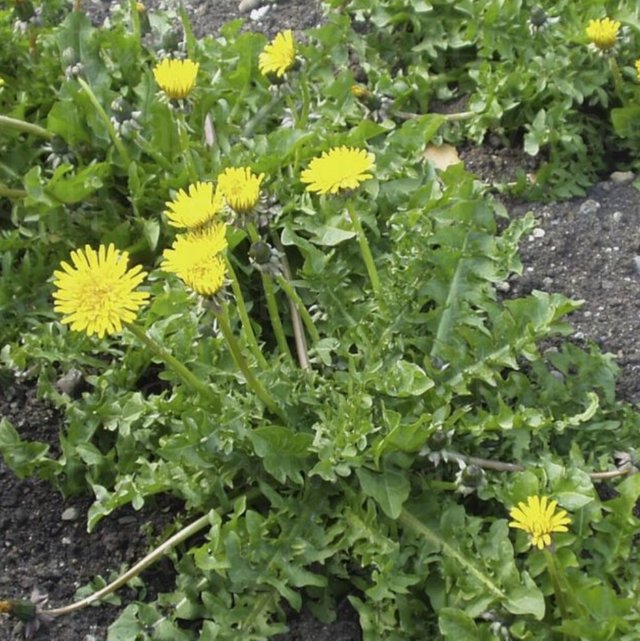
These are an excellent tonic, particularly for the liver, and rich in potassium. Pick the youngest leaves for raw salads. They work well with potatoes, onions, and those tinned sardines you’ve been stockpiling. Dandelion microgreens can be harvested at between 10 and 21 days, when they are several centimetres high. These leaves may be small, but they are packed full of nutrients; there’s evidence to show that they have higher levels of antioxidants and other bioactive compounds than mature vegetables.

If you don’t have a garden, then check the back of your cupboard for something to sprout. Dried mung, adzuki and soya beans, chickpeas, whole lentils, barley, rye, spelt, sweetcorn, kale, fenugreek, radish and mustard seed can all be used, as long as they are seeds suitable for eating (ordinary garden seeds may have been treated with chemicals so are not suitable).
Growing super-quick windowsill greens will allow you to sprinkle nutrients and vitamins over dishes, adding flavour and boosting your immunity. The "peppers" staple of curried baked beans served with a delicate heap of fresh coriander and kale seedlings is a mighty lot more tasty (and healthful) than without. OK, maybe that's not the best example, but you get the jist.
Parsnips, beans, rhubarb and anything in the Solanaceae family (tomatoes, peppers) cannot be eaten as seedling plants, but everything else is fair game. The quickest-growing will be radish and rocket. Kale and broccoli score highly in terms of nutrients (vitamin E) so I would favour them and any other brassicas (brussels sprouts, cabbages, kohlrabi) over lettuce, which would have to be added in huge quantities to make any difference to a dish’s nutritional profile.
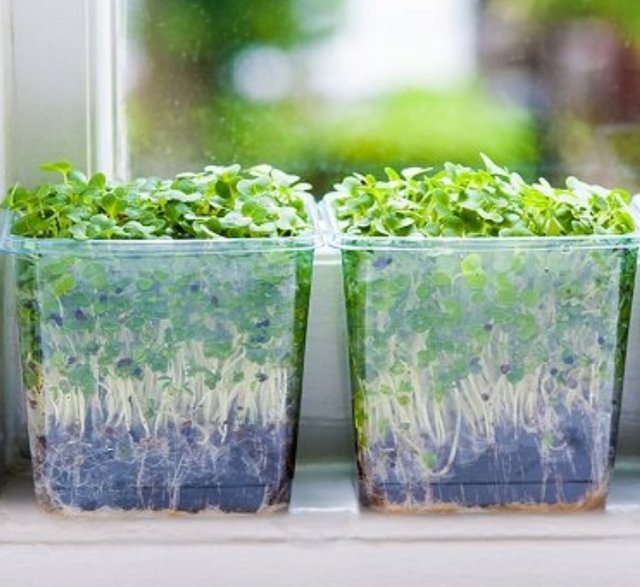
The leaves may be small, but they are packed full of nutrientsand, and since sprouting take only one to five days, they are a very quick way to get started. You can eat the whole sprout raw, seed and all, but don’t eat too many of the legumes, raw or cooked, or you’ll get indigestion.
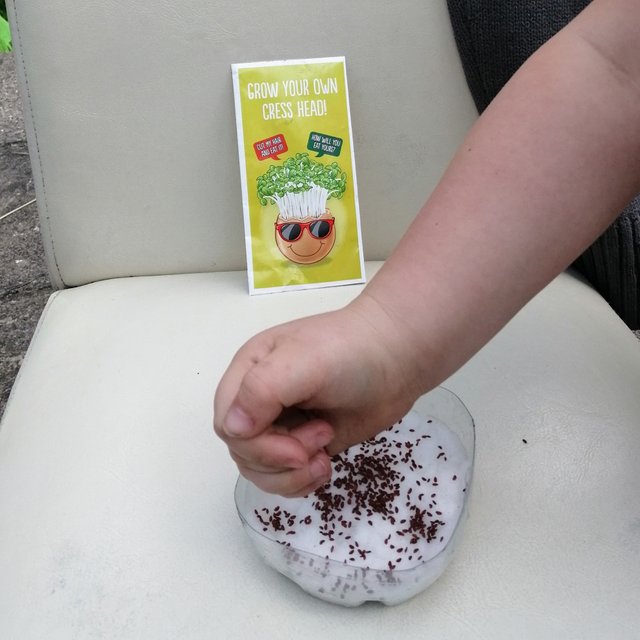
Cress is a popular microgreen due to how easy it is to grow and the fact that it’s one of the most nutrient-dense greens out there. It even beats the Almighty Kale in terms of nutrient density. The peppery taste and unique leaf structure make it a chef favorite, used in soups, salads, and garnishes. For the home cook, cress is great for juicing, smoothies, or as an addition to a salad mix to add some extra spice.
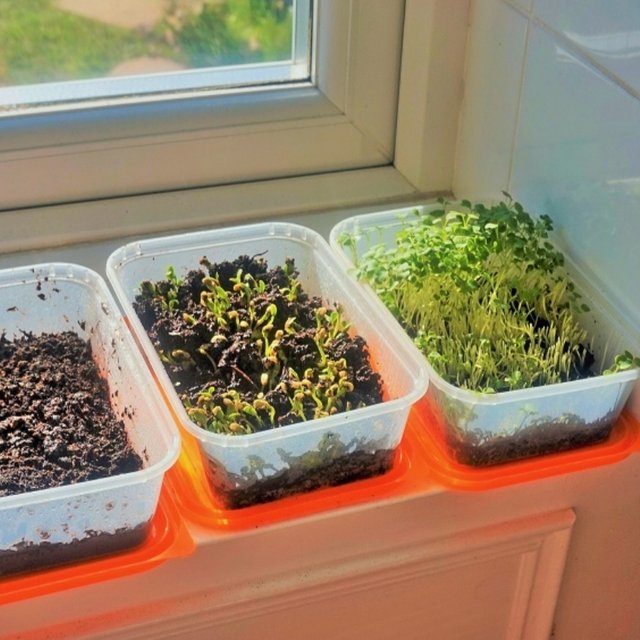
You can also try cooking with sprouted chickpeas, beans, spelt, rye and barley. The day after they begin to sprout, use them in the same way you would dried pulses; you’ll find they cook in half the time.
Go big or go home.... But with microgreens there’s no need. Microgreens are essentially vegetables and herbs that haven’t hit puberty yet, but are four to 40 times more nutrient-dense than their mature leaf counterparts, and they are 100 percent bioavailable. That means your body is able to absorb all the nutrient content, which may not be the case for similarly nutrient-dense vitamin supplements. Because the seedlings get everything they need from their own stores and the sun, and are harvested before they need that extra nutrients soil provides, they can be grown plentiful in small spaces.
Soak your seeds overnight - This will help to speed up germination, then sprinkle your seeds evenly across the top of the soil.
Sow them thick - You’ll be harvesting these young you don’t need space between each plant – you want to have lots of seedlings coming up nice and close to each other to ensure a plentiful harvest.
Mist with water and keep the tray moist - Keep in a warm spot until the seeds germinate and green shoots appear.
Cover the tray with a lid - Damp paper towel or use another tray inverted on top, this will help stop them from drying out.
Once you’ve got sprouts appearing - Take off the cover and leave them in a well-lit spot until they’re ready to harvest in a week or two. A sunny windowsill or a sheltered spot outdoors is perfect.
Once the seedlings are large enough to handle, snip them off and use as a garnish. To maximise nutrients, do this just before serving your meal. Bon appétit.
Wow, this is really superb information and guidelines for a noobie like me in gardening. Thank you for the effort to blog them out. :)
You're very welcome. I'm just happy that some people read my blogs, and if just one extra person is convinced to give it a go, then I'll feel it was worth it.
Very useful, resteeming for later reference. Keep the good content coming.
You got a 50.00% upvote from @votemypost Send any amount of Steem to @votemypost with your post link in the memo for a proportional upvote. Earn a passive income by delegating Steem Power to @votemypost
If you are looking to earn a passive no hassle return on your Steem Power, delegate your SP to @votemypost by clicking on one of the ready to
delegate links:
25SP | 50SP | 75SP | 100SP | 250SP | 500SP | 1000SP | 2500SP | 5000SP
Another Amount
You will earn 85% of the voting bot's earnings based on your delegated SP's prorated share of the bot's SP each day! You can also undelegate at anytime.
Superb!
Very useful tips for gardening. Thanks for sharing
For some reason I was under the impression that with micro greens you had very limited options on what you can grow. If it's all the things you listed in your post and many more veggies, it sounds like you could live off of it for your day to day vegetables! Definitely a must try for me. So basically you can grow them indoors as well right in extreme winters?